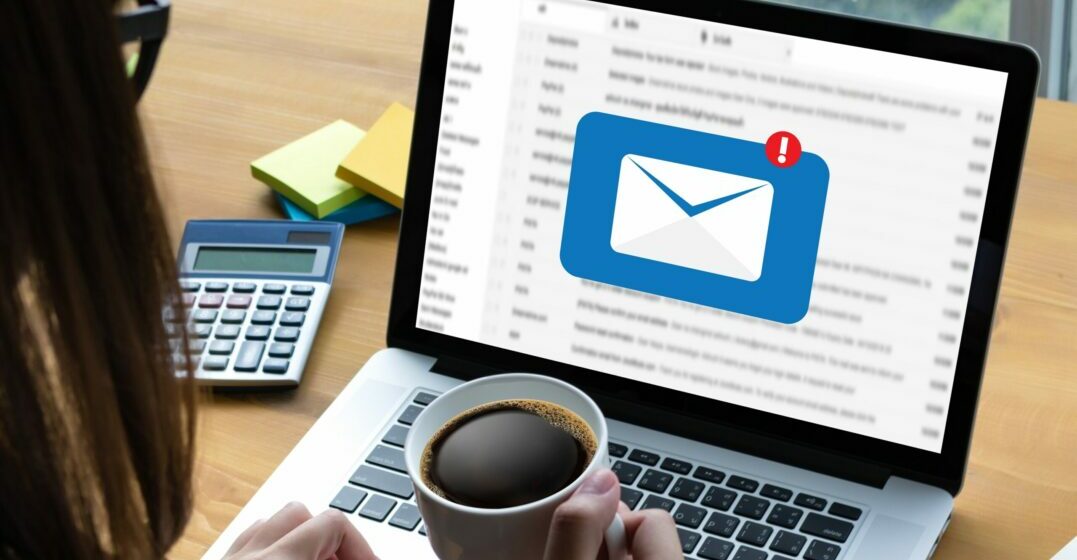How to write an email in German: Tips for formal and informal emails

When you're not yet fluent in German, having a conversation in person or on the phone can be daunting. Luckily, you can deal with many matters, formal or informal, via email. However, this form of communication is not without its pitfalls: Writing an email in German raises questions of formality, tone and proper address.
Our guide will show you how to properly address someone in a German email, how to write formally and informally, and how to close so you can get a reply as soon as possible. Last, check our useful phrases for writing an email in German to avoid grammar mistakes.
- How to start an email in German: proper address
- Composing the main part of an email in German
- Closing an email in German
- Useful phrases for writing an email in German

Learn German with Lingoda
How it works

How to start an email in German: Proper address
Before you compose an email in German, you’ll have to consider whether you’re going to address the recipient in formal or informal language. The English second-person pronoun “you” translates into Sie or du in the singular and Sie or ihr in the plural, in case you’re writing to more than one person at the same time (formal and informal, respectively).
In a business email, a job application or any sort of formal inquiry, the formal address is usually a safe bet, especially when you haven’t met in person. Exceptions could be when the person has already addressed you informally or you don’t want to come across as square or stiff. In a start-up environment with flat hierarchies, for example, it could be common to address each other informally and on a first-name basis.
This brings us to the second part of how to address your email recipient in German: You’ll have to choose between their first or last name. Again, in formal circumstances in Germany, using the last name to address a person is usually appropriate, but look for clues that might indicate otherwise, like how they addressed you, how formal their online profile is or how formal the matter is.
Salutations for a formal email in German
To begin your German email with a formal salutation, consider using:
- Sehr geehrte Frau Scholz, - “Esteemed Ms. Scholz”
- Sehr geehrter Herr Döring, - “Esteemed Mr. Döring”
- Sehr geehrter Herr Professor Schmitz, - “Esteemed Professor Schmitz”
- Sehr geehrte Frau Doktor Freud, - “Esteemed Doctor Freud”
- Sehr geehrte Damen und Herren, - “Dear Sir or Madam”
- Guten Tag, - “Good day”
Salutations for an informal email in German
A more informal email salutation can still include the last name or be on a first-name basis:
- Liebe Frau Trudel, - “Dear Ms. Trudel”
- Lieber Herr Brauns, - “Dear Mr. Brauns”
- Lieber Anton, - “Dear Anton”
- Lieber Kai, - “Dear Kai”
- Hallo Sabine und Tim, - “Hello Sabine and Tim”
- Hallo, - “Hello”
- Hey, - “Hey”
Composing the main part of an email in German
Throughout the body or main text of your German email, you’ll then repeat the chosen form of addressing the email recipient. You don’t have to repeat their name and title every single time, but you definitely need to stick with either du or Sie. Note that the salutation ends in a comma and the first sentence of your email is then NOT capitalized. Yes, German is full of these rules; master them by learning German fast!
Composing a formal email in German
Write your formal German email in a reserved and polite manner, avoiding spelling and grammar mistakes and slang or derogatory language. For most subjects, you can get straight to the point and don’t have to beat around the bush or talk about the weather. After all, life is short.
- For a job application: Briefly state who you are, and for which position you’re applying, outline why you’re a good fit and list what documents you’re attaching. See also our more detailed instructions on how to find a job in Germany.
- How to write a business email in German: If you haven’t met or been introduced, briefly state who you are before summarizing the matter over which you’re contacting the person. Describe the problem, make your proposal or outline your vision, then state the reply or action you want them to take, and by when.
- Follow-up email in German: Briefly remind the recipient of who you are, summarize your position, proposal or previous communication and describe what kind of reply or action you’re looking for from them, as well as how soon you’d like to hear from them or how they should reach out to you.
Composing an informal email in German
When writing to a friend or casual acquaintance, you can take many more liberties, depending on how well you know each other. Emoticons and emojis are definitely acceptable in that setting, as well as informal language, jokes and asides.
There’s less reason to be brief, but same as in a formal setting, if you want someone to take action or need a certain response, clearly communicate deadlines and expectations to avoid frustration and unnecessary back-and-forth.

Learn German with Lingoda
How it works

Closing an email in German
After you’ve written the body of your German email and checked for any spelling errors and grammar mistakes, it’s time to sign off properly. Just like with the salutation at the beginning, it’s important you choose the formal or informal phrase. Note that, unlike in English, with all the following expressions you don’t use a comma in German before signing your name.
Formal closing for a German email
- Ich freue mich von Ihnen zu hören und verbleibe mit freundlichen Grüßen - “I look forward to hearing from you and remain with best regards” (very formal)
- Mit freundlichen Grüßen - “With kind regards”
- Mit freundlichem Gruß - “Sincerely”
- Vielen Dank und freundliche Grüße - “Thank you and best regards”
- Besten Dank und beste Grüße - “Many thanks and best regards”
- Mit den besten Empfehlungen - “With the best recommendations”
Informal closing for a German email
- Viele Grüße (short: VG) - Many greetings
- Liebe Grüße (short: LG) - Warm greetings
- Beste Grüße - Best regards
- Mach's gut - Take care
- Bis bald - See you soon
- Tschau - Bye
- Tschüss - Bye
Useful phrases for writing an email in German
If you’re still poring over what to write in the body of your email, here are a few phrases that might come in handy for composing your email in German.
| GERMAN | ENGLISH |
| Ich schreibe Ihnen weil... | I am writing to you because ... |
| Bitte haben Sie Verständnis, dass... | Please understand that... |
| Es tut mir leid, aber... | I am sorry, but... |
| Es geht um Folgendes: | It is all about: |
| Ich habe folgendes Anliegen: | I have the following request: |
| Ich antworte auf Ihre E-Mail vom... | I am answering your email from... |
| Ich würde gerne klären, ob... | I would like to clarify whether... |
| Zur Sache: | Regarding: |
| Ich erinnere an mein Schreiben vom... | I’d like to remind you of my correspondence dated ... |
| Bitte lassen Sie mich wissen, ob... | Please let me know if ... |
| Vielen Dank für Ihre schnelle Antwort. | Thank you for your quick response. |
| Ich hoffe, bald von Ihnen zu hören. | I hope to hear from you soon. |
| Vielen Dank für Ihre Aufmerksamkeit und beste Grüße | Thank you for your attention and best regards |
| Bei weiteren Fragen stehe ich Ihnen gerne zur Verfügung. | For further information do not hesitate to contact me. |
| Vielen dank im Voraus für Ihre schnelle Antwort. | Thank you in advance for your quick reply. |
Final check before sending a German email
Finally, before hitting that send button, check your spelling one more time. Rely on the spelling and dictionary functions of your email; Gmail will underline misspelled words, even in German. Make sure your proper signature and attachments are in place. Speaking of attachments: learn how to write a resume in English for German job applications.
Are you looking for a classic form of communication, or do you need to send something in the regular mail? Learn how to write a letter in German.

Learn German with Lingoda
How it works














